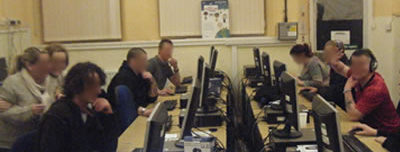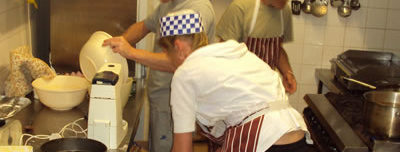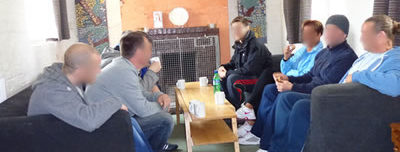Cognitive behavioural therapy (CBT)
This is a form of psychotherapy which can help to change how a person thinks (cognitive) and what they do (behavourial). CBT focuses on how to improve emotional wellbeing in the now, by encouraging the client to consider:
- how they think about themselves, other people and the world
- and to begin to recognise that what they do affects their thought s and feelings.
Art psychotherapy
This is a psychological therapy that uses images – enabling people to make sense of what they are feeling and thinking. We use a wide variety of art materials to help the client give expression to unformed thoughts and feelings which they might not be able to express elsewhere. Towards the end of treatment clients review all their art work with the therapist, exploring their emotional and psychological journey undertaken whilst on the programme.
Drama psychotherapy
This is an interactive and creative process in which the client is able to address their emotional and psychological problems by projection and dramatic distancing. Clients are not expected to ‘act’ but allow themselves to experience their past and present in safe, structured sessions.
Couples/Family/Relationships Therapy
These therapies enable the client to understand how they relate to others, allowing them to evaluate and change these relationships to more helpful ones. One of the key issues within relationships and recovery is co-dependency. Co-dependency is recognised as an addictive relationship in itself and is therefore recognised as an integral part of recovery. These therapies enable the client to develop a healthy relationship with themselves and others.
Humanistic counselling
We introduce all clients to humanistic counselling as part of their therapeutic treatment programme. We believe that each individual has the potential to achieve, and can be motivated to change if they feel valued and respected for who and what they are. Each treatment programme is individually designed around the need of the individual client because ‘they know what hurts’. We aim to provide a safe, secure learning environment, where learning and change can take place.
Motivational therapies
We offer a cluster of motivational therapies, including neuro-linguistic programming, which build on communication skills and personal development, both as an individual and team member. Frequently such techniques are introduced as part of ‘experiential learning’ where clients are encouraged to participate with other group members.












